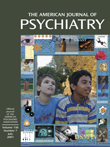Comparing Psychotherapy and Pharmacotherapy
To the Editor: In an interesting review, Dr. Klein critically examined four meta-analyses “that claim to quantitatively compare the benefits of psychotherapy to pharmacotherapy in patients with psychiatric disorders” (p. 1204). The article dealt with some important aspects of meta-analyses that must be taken into account in evaluating their conclusions. For example, Dr. Klein correctly pointed out the economic and ideological consequences that may play a role in claims derived from meta-analyses. Although we agree that a meta-analysis is no substitute for direct comparisons in adequately designed studies, we have some remarks concerning his selection of the meta-analyses discussed and his comments.
First, he discussed two meta-analyses of panic disorder that were published in 1995 and 1989 but paid no attention to our more recent meta-analyses from 1997 and 1998 (1, 2). In these studies, we addressed several criticisms that he made. We did control for a possible publication bias toward positive results (it probably would not change the conclusions for panic disorder), checked for potential differences between a wait-listed control group and a placebo group (we found comparable effect sizes), and performed quality assessments (we found no relationship between quality and outcome). In both meta-analyses, we found that the combination of antidepressants and exposure in vivo was superior to either therapy given separately.
Second, Dr. Klein discussed our meta-analysis of treatments for obsessive-compulsive disorder (OCD) (3) and criticized the noncomparative effect size we used because it was “vulnerable to several artifacts” (p. 1208) without specifying these artifacts. He also stated that “since only one of the 86 studies directly compared psychological with pharmacological interventions and showed no significant a priori distinctions between the two treatments, this conclusion [that behavior therapy is more effective for the treatment of OCD than antidepressants] goes far beyond the data” (p. 1208). As we pointed out in the introduction of the article, the scarcity of direct comparisons was precisely the reason we undertook the meta-analysis: as a next-best answer to the question of relative efficacy. Unfortunately, to our knowledge, even to this date no direct comparisons of antidepressants and cognitive behavior therapy in OCD have been published. We hope that the field picks up the recommendation to conduct comparative studies in both fields.
1. van Balkom AJLM, Bakker A, Spinhoven PH, Blaauw BMJW, Smeenk S, Ruesink B: A meta-analysis of the treatment of panic disorder with or without agoraphobia. J Nerv Ment Dis 1997; 185:510-516Crossref, Medline, Google Scholar
2. Bakker A, van Balkom AJLM, Spinhoven PH, Blaauw BMJW, van Dyck R: Follow-up on the treatment of panic disorder with or without agoraphobia. J Nerv Ment Dis 1998; 186:414-419Crossref, Medline, Google Scholar
3. van Balkom AJLM, van Oppen P, Vermeulen AWA, van Dyck R, Nauta MCE, Vorst HCM: A meta-analysis on the treatment of obsessive compulsive disorder: a comparison of antidepressants, behavior, and cognitive therapy. Clin Psychol Rev 1994; 14:359-381Crossref, Google Scholar



